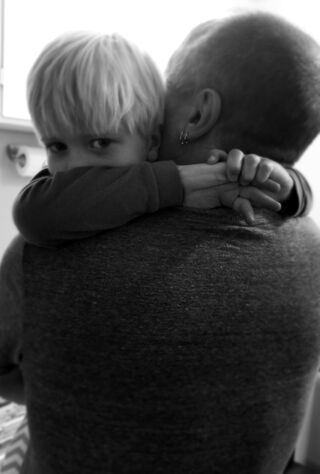Forgiveness
Apologizing and Making Amends
It's something we all need.
Posted October 8, 2022 Reviewed by Vanessa Lancaster
Key points
- We all make mistakes, big and small. Apologies and making amends provide healing for the injured party.
- Making amends can be equally healing and essential for someone who has committed wrongdoing.
- Apology and making amends are crucial in a relationship because it establishes, or re-establishes, a basis of trust.
We all make mistakes, big and small. Amid our lives, we flounder. We let emotions and/or unconscious baggage dictate our words or actions, and in the process, sometimes cause people we love, care about, or respect pain. This is a fact of life and relationship, so the question is not will this happen. The question is what to do when it does happen.
Some might argue that most of the time when someone acts in a hurtful way, it’s typically out of anger, pain, addiction, or simply carelessness. It wasn’t sadistic or intended to hurt, so why rub it in? And besides, it’s over and done–it’s in the past–why not just “move on?”

And yet every spiritual and religious tradition includes the importance of apology, forgiveness, and making amends. In Judaism, one of the year's holiest days is the day of atonement. Catholics confess their sins to a priest to receive guidance and forgiveness.
In the 12-step program, making amends to people you have harmed is one of the steps. Part of the practice of karma yoga is about right actions and dealing ethically with others, and it includes trying to right the wrongs we have done.
Usually, when we think about apologies and making amends, we think about it in terms of providing healing for the injured party, and there’s no question it can be a gift. A sincere apology can be medicine for a wounded heart.
But making amends can be equally healing and important for someone who has committed the wrong-doing. Tara Brach, a psychologist and Buddhist practitioner, wrote of this act's importance for healing for both parties. She wrote:
Self-forgiveness is often not even possible, and certainly cannot be complete, until we have in some way made amends to those we've injured. Making amends is not for satisfying an external standard of morality. Rather, it is an expression of our belonging to the world and our own hearts. The urge to make amends arises when we have dared to face the reality of our impact on others. It arises when our hearts yearn to relieve their suffering or when we dedicate ourselves to not causing further suffering.
As we intentionally take responsibility for our actions, the harsh grip of self-aversion loosens, and we come home to a sense of connectedness, peace, and ease. This healing is very close to the Jewish process of atonement. By atoning for our errors, we make possible reconciliation–with God, with the injured other, and with our own heart and being.
“There are measurable health benefits to having an open heart and a clear mind,” said Frederic Luskin, director of the Stanford University Forgiveness Project. “A sincere apology is a central mechanism to self-forgiveness.”
So how does one go about making sincere amends? On the surface, it seems simple. Just go to the person and say, “I’m sorry.” But hasn’t everyone had the experience of having that inadequate apology thrown our way? Usually, it isn’t really satisfying, nor does it take away the concern that the person is simply trying to get you to leave them alone or forget about what just happened.
True apology and making amends is something much more than that. David Hawkins, director of the Marriage Recovery Center, outlined one prescription. He outlined a three-step process of the three R’s: remorse, responsibility, and restitution.
- A sincere expression of remorse is a simple statement that you are truly sorry for what you’ve done without excuses, dismissal, and rationalizations.
- A statement of responsibility. We accept and understand our behavior's impact on the injured party.
- Restitution. We are willing to take whatever steps are necessary to make it up to the injured person–to listen to what they need from us. “Humbling ourselves,” he said, “we listen to what they need to feel safe again. We are paying back something we’ve taken from them.”
Kelly McGonigal, a yoga teacher and research psychologist at Stanford University, offers a four-step practice of making amends rooted in Tibetan Buddhist philosophy.
- Recognize that you’ve done something that caused suffering or harm.
- Sit with remorse and regret–feel it in your body and experience the emotions. Remorse leads to action.
- Move towards a place of compassion for yourself and the person you harmed.
- Fueled by those compassionate feelings, we move to setting an intention toward positive action.
That action can and probably should have two parts to it. The first, which Hawkins outlined, is about “making things right” with the injured person. The second part concerns understanding why it happened and how to prevent it from happening again.
Bo Forbes, a yoga therapist and psychologist, said,
We all have samskaras, or patterns, that lead us to behave in certain ways. To learn from our experiences, we want to look at those patterns in detail. Have you done this before? What were the triggers? The last step is looking at how you can move out of that pattern. This brings up to real change.
Apology and atonement are offered to the person we hurt, but they also help us grow. Atonement brings real change.
Finally, apology and making amends are crucial in a relationship because it establishes, or re-establishes, a basis of trust. It is an important and powerful way of asserting that we have the same values. We are both committed to being kind, loving, and considerate and doing whatever is in our power not to cause harm to someone else.
Our actions are an indication of our values and our character as a person. When we act in a way that violates these values, apologizing, making amends, and doing what it takes to make things right and prevent reoccurrence is the first step towards healing and a big step towards ensuring a future that is in alignment with the right living for everyone involved.




